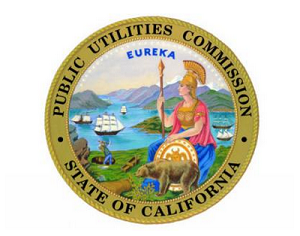CPUC Approves Charter-TWC Deal
The smarter way to stay on top of the multichannel video marketplace. Sign up below.
You are now subscribed
Your newsletter sign-up was successful

The California Public Utilities Commission has unanimously approved the transfer of control of various Time Warner Cable and Bright House California systems and telcos to Charter. That was the last remaining obstacle to closing the deal, which is now expected to close next week.
A CPUC Administrative Law Judge had recommended the conditional approval, but that was a recommendation and still needed to be voted.
“We are pleased to have now obtained all approvals," said Charter CEO Tom Rutledge. "We look forward to closing these transactions next week and to begin delivering the many benefits of these transactions to consumers.”
The vote came at its public meeting in Sacramento Thursday (May 12) and followed public and legislator comment on the deal. The meeting room was standing room only.
Charter agreed to allow parties to various memoranda of understanding (MOUs), as well as the commission, to monitor them. Charter also agreed to accept the commission's jurisdiction over the deal, which it had challenged in part, which one commissioner signaled was important, but sought an edit to the order saying that any party to the proceeding, not just to the MOUs or commissioners' staffer, could petition for a notice of inquiry into enforcement of a condition. She withdrew the edit, but got a commitment form her fellow commissioenrs that the conditions could be monitored and enforced.
Commission President Michael Picker outlined the conditions. They include to increase board diversity, create a chief diversity officer, boost supplier diversity, and work to expand minority programming. New Charter will also upgrade cable systems and VoIP service, and provide low-income, low-price broadband.
New Charter will upgrade to 300 Mbps by 2019 and will allow all customers to buy their own modems and set-tops without added cost. Picker cited Charter's commitment to adhere to the current net neutrality order no matter what the court does, but added he was confident the court would uphold it.
The smarter way to stay on top of the multichannel video marketplace. Sign up below.
Just in case, though, Picker said New Charter will adhere to Open Internet for the next three years from the closing of the transaction, and clarified that language in the final order.
All the commissioners cited the broadband buildout promises as important value-addeds for their communities.
A couple dozen people spoke about the deal, with each getting one minute apiece. There were numerous groups and individuals speaking out in favor of the deal along with passionate, but far fewer, naysayers, most focusing on diversity.
Among those speaking for the deal was Pastor William Smart of the Southern Christian Leadership Conference of Southern California. He called the deal "the right thing at the right time," particularly for low-income residents.
Another supporter said the deal would mean more affordable access for more people.
Alice Kessler of Equility Califorain, an LGBT advocacy organization, said she supported the deal, saying Time Warner Cable has been very involved in the community and supportive of LGBT, and said she thought the deal would mean even more diversity.
Former Assembly member Steve Bradford also stood in support of the deal and said he did not take the decision lightly. He said he had worked with both, and said they have strong committments to workforce, contracting and procurement diversity.
A self-described customer of Time Warner Cable with 40 years of experience with the cable business and a California state legislator said the ability to bridge the digital divide is "all accommodated in this merger proposal." He said he was in full support.
Several asseumbly members, past and present, spoke out for the deal.
High speed access for low income families and senior citizens appeared to be a key driver of the support, or at least that was cited.
The CEO of Crossings TV, which serves the Asian community, was another fan. He said after extended conversations with Charter, he has the "highest confidence" that Charter willbe supportive of that.
The California Emerging Technology Fund said the deal would bring broadband to low-income communities. She said the decision was in the public interest and would help close the digital divide.
The president of the California NAACP said she loved the merger because it would provide diversity and more opportunities for minorities.
On the other side one speaker said Charter was in violation of FCC rules. He said any commissioner who votes yes is in violation of the law. "Please stop the Charter/Time Warner merger.
He was asked by one commissioner what rule was broken. He said the rule to "accept 100% African American-owned media." The reference was to a minority programming condition in the NBCU merger approval.
A second opponent cited the $10 billion suit filed by Byron Allen against Charter, which is over the %100 African American issue."
A disabled veteran complained that the low-income expansion did not inlude the disabled. He also cited the lawsuit and said that there are not black members of the Charter board.
Another opponent brought up the racial discrimination suit, and then another and another, repeating the several racial bias charges.
A representative of California Black Media said she was troubled by those comments, but still supported the deal, though she added that it had opposed Comcast-TWC. She said this deal was the right thing to do.
A representative of the National Diversity Coalition said she was impressed that there were a lot more supporters than opponents.
Contributing editor John Eggerton has been an editor and/or writer on media regulation, legislation and policy for over four decades, including covering the FCC, FTC, Congress, the major media trade associations, and the federal courts. In addition to Multichannel News and Broadcasting + Cable, his work has appeared in Radio World, TV Technology, TV Fax, This Week in Consumer Electronics, Variety and the Encyclopedia Britannica.

